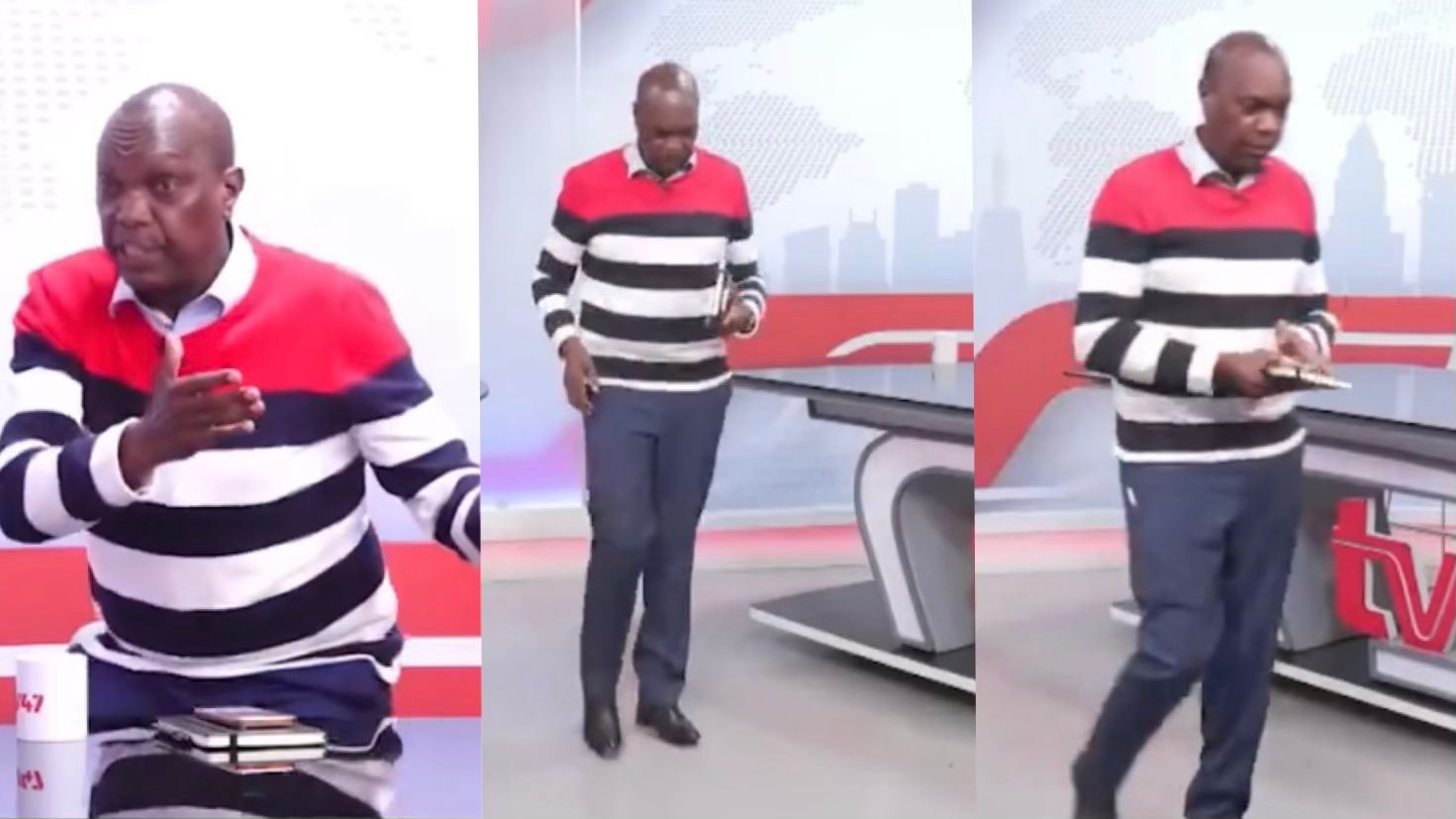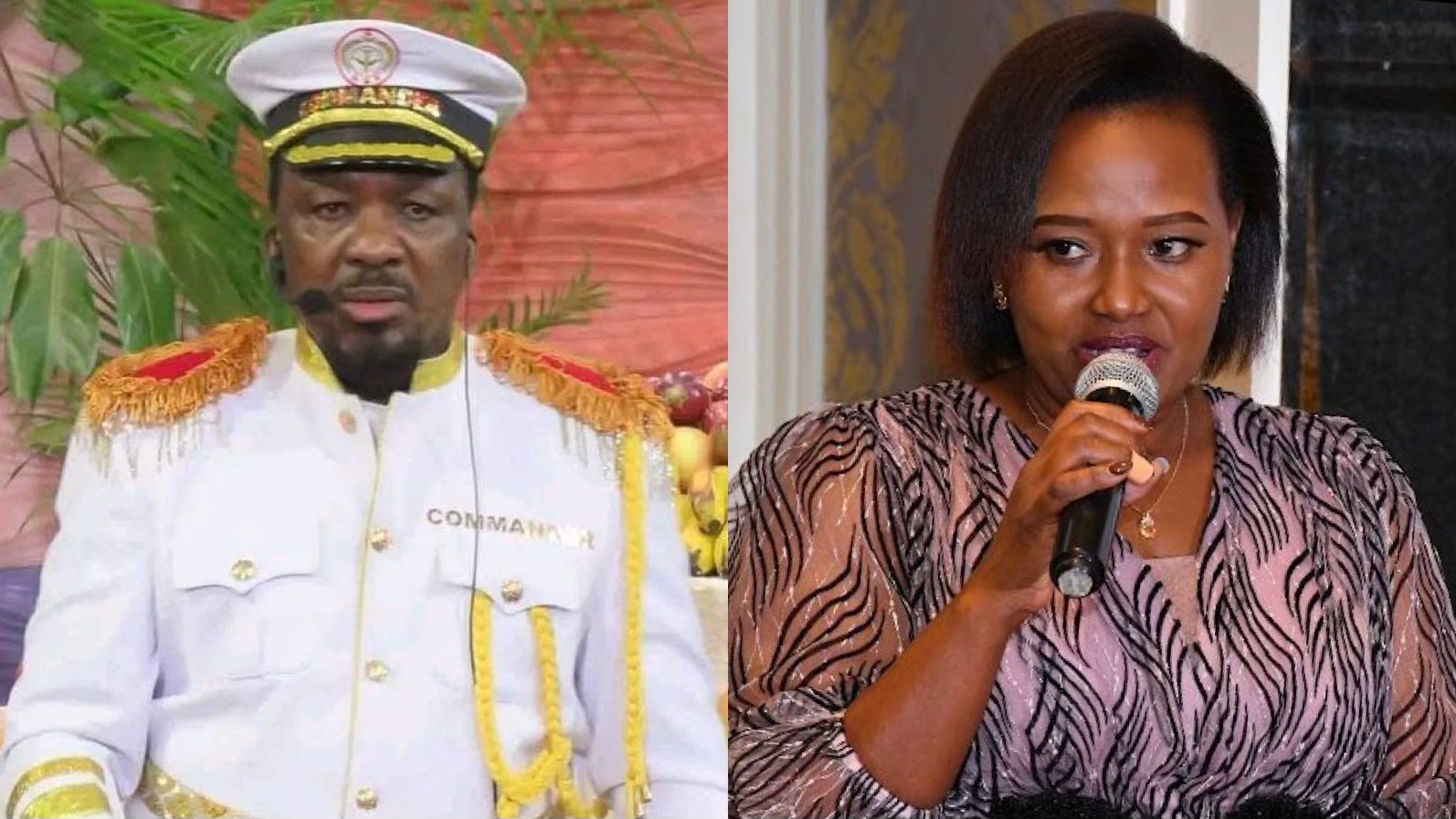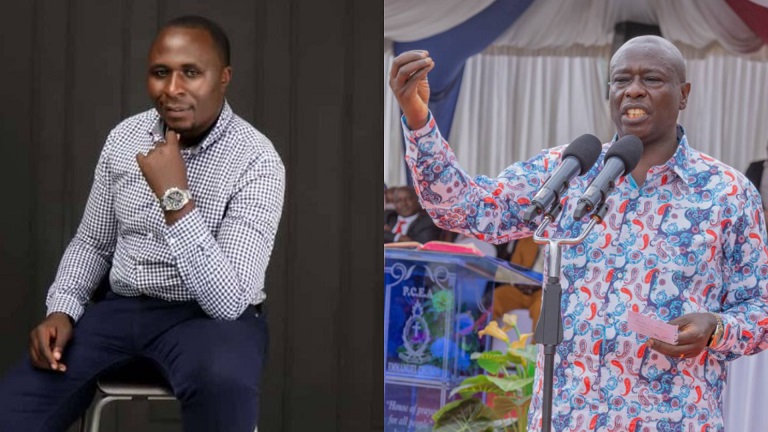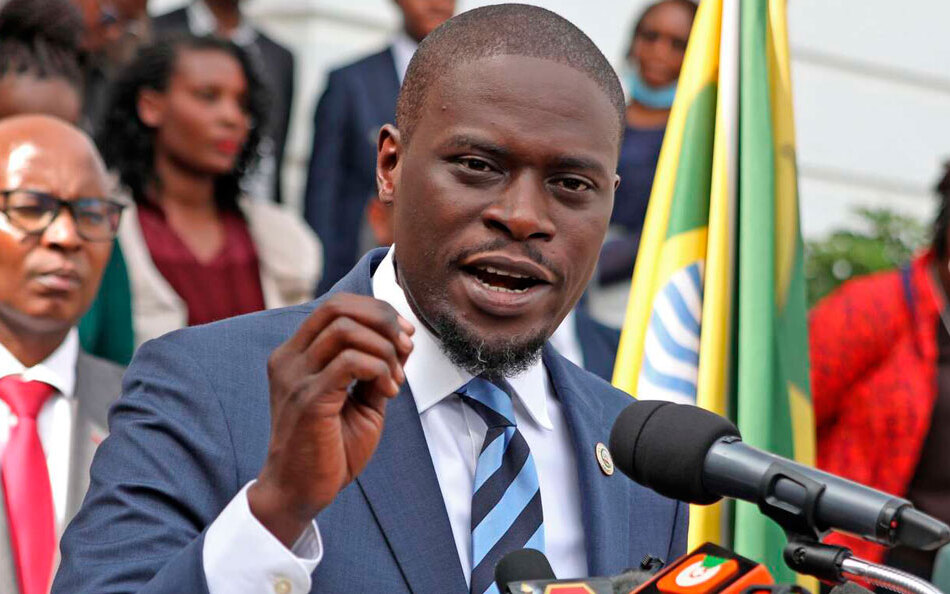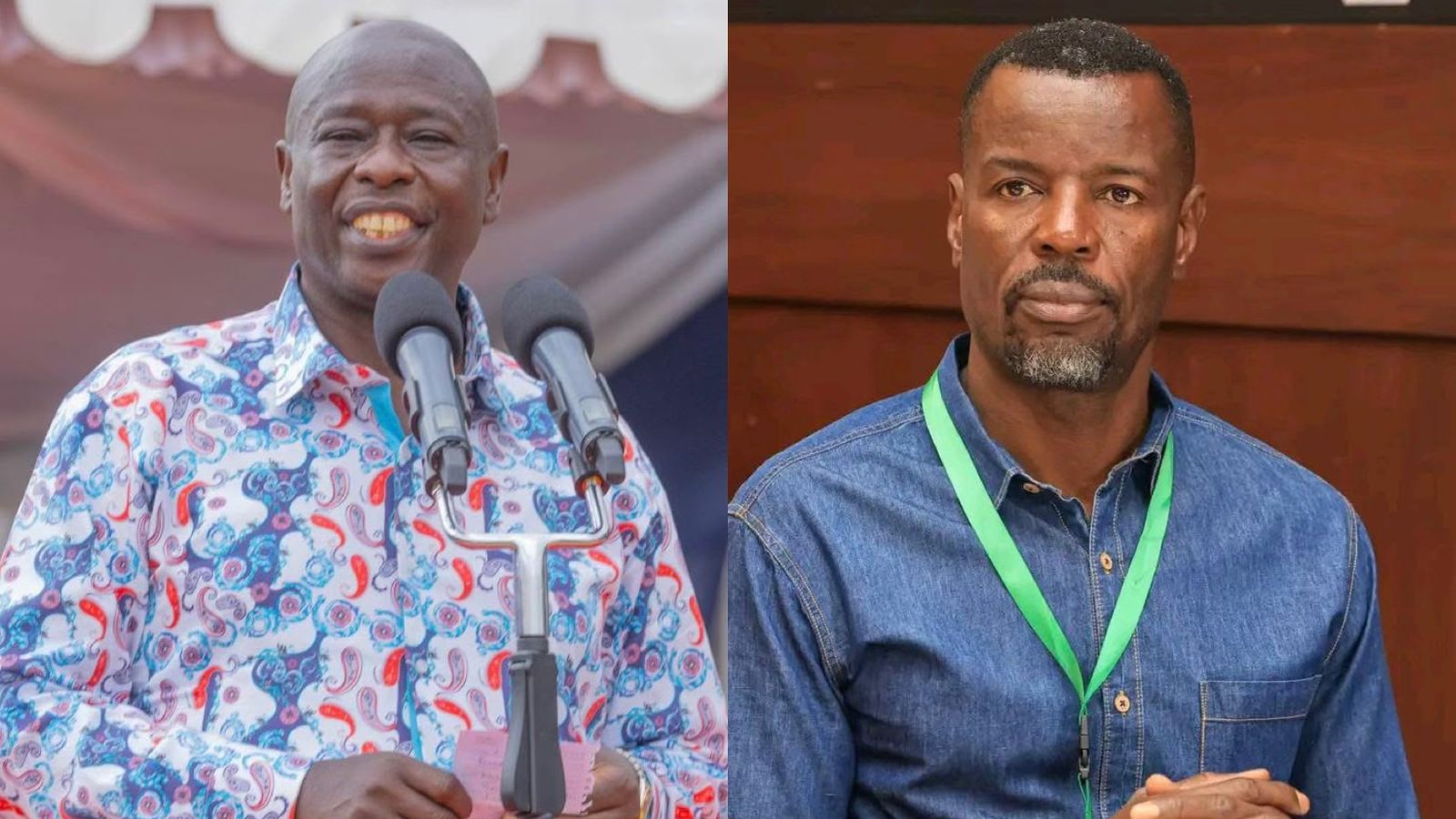Jubilee Party Secretary General Jeremiah Kioni on Wednesday evening, October 24, walked out of a live TV interview following a heated exchange with Dadaab MP Farah Maalim.
Kioni refused to debate Maalim following his alleged remarks earlier in the year that he would have slaughtered 5,000 Gen-Zs daily if he were president.
"When you say you are going to kill 5,000 Gen-Zs in this country, don't tell me that the over 5 million Gen-Zs we have are so daft that we don't have Somalis within them that can be able to interpret that statement correctly," Kioni said.
When Maalim fired back at Kioni accusing him of deviating from discussing substantive issues, the Jubilee SG stated that he would only debate with someone who respects Kenyans.
"It is my business to ensure that any debate I'm engaging in, I'm engaging in a debate with people who have respect for Kenyans," he said.
Read More
At this point, the reporter moderating the debate had interjected several times in support of Maalim, forcing Kioni to express his dissatisfaction with her decision to pair him with the Dadaab MP.
"I'm taking offense that you are putting me on the same table with a person who wants to kill 5,000 GenZs and there is no way he can escape from it. I'm your friend and I came here because you invited me, and I asked you clearly, 'who is it that I'm going to debate with?' If you had told me it's Farah, I would have respectfully told you, 'until I'm able to reconcile myself with his intentions of killing 5,000 GenZs, I'm unable to debate with him,'" Kioni said.
As Maalim tried to defend himself, Kioni stood, picked up his items from the table, and walked out of the interview.
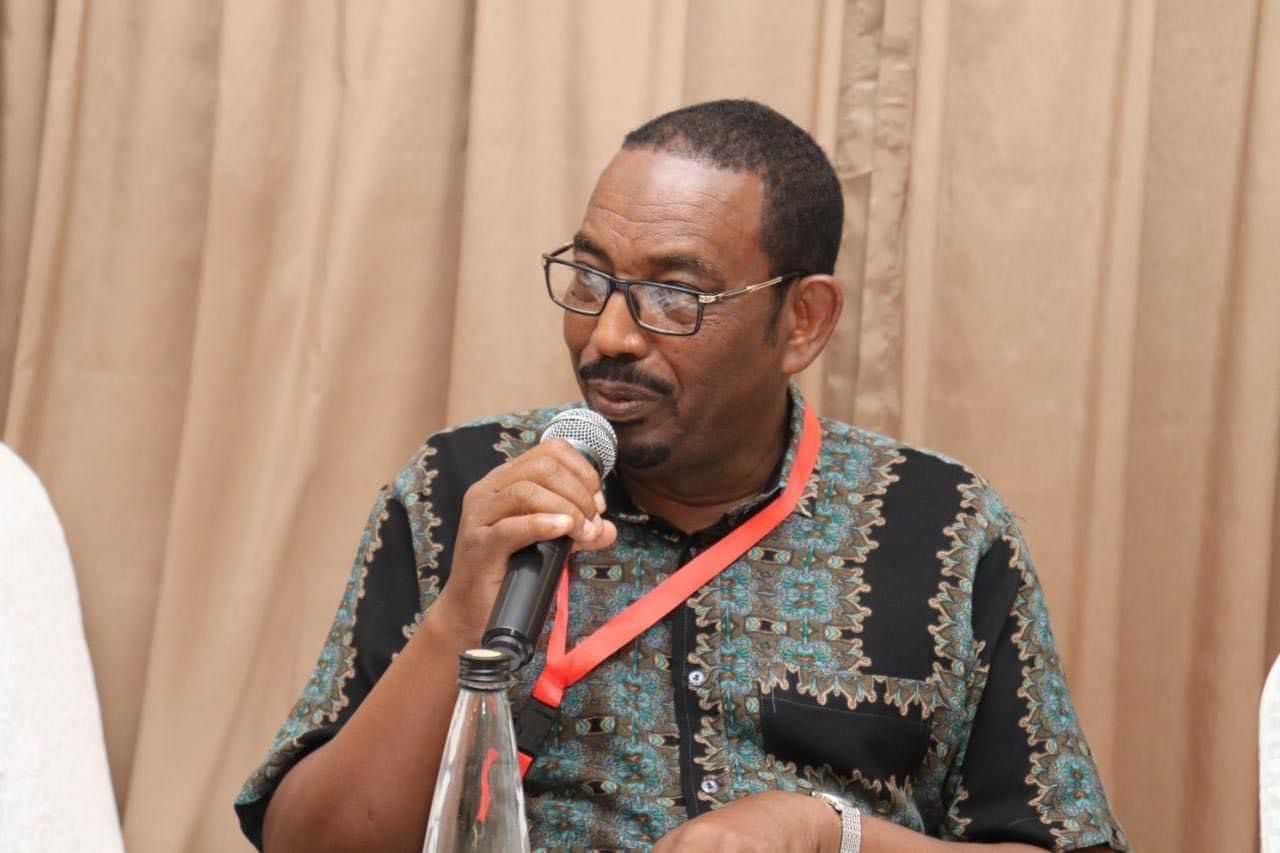
In July 2024, Maalim sparked outrage after a video surfaced in which he allegedly threatened to "slaughter 5,000 Gen-Z protesters" if he were president.
This statement was made during a condemnation of young protesters opposing the Finance Bill 2024, which he characterized as an "attempted coup" by privileged youth.
In response to the backlash, Maalim defended himself by claiming the video was heavily edited to misrepresent his words.
He argued that his comments were taken out of context and that they had been manipulated by political opponents seeking to tarnish his reputation.
"It's all editing, cutting, and pasting, taking a word from here, another one from here and putting it together. There is a lot of nonsense there. It's Somalis basically who would do that because I weighed in on their politics. It's not the true picture," he said.
Despite his defense, the National Cohesion and Integration Commission (NCIC) summoned him for investigation due to concerns that his remarks could incite violence and hatred among different political groups.
"The utterances are likely to incite feelings of contempt, hatred, hostility, violence or discrimination, and affect harmonious coexistence between groups of different political affiliations in Kenya, contrary to Section 13 (1) (a) of the NCI Act," NCIC said.
